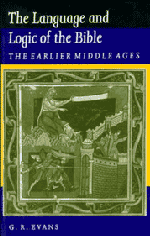Book contents
- Frontmatter
- Contents
- Preface
- Acknowledgements
- List of abbreviations
- List of ancient and mediaeval sources
- Biographical notes
- Introduction
- Part I The background
- Part II Lectio: surface and depths
- Part III Disputatio
- 8 Questions
- 9 Contradictory authorities
- 10 A new approach to resolving contradictions
- Conclusion
- Notes
- Select bibliography
- Index
- Frontmatter
- Contents
- Preface
- Acknowledgements
- List of abbreviations
- List of ancient and mediaeval sources
- Biographical notes
- Introduction
- Part I The background
- Part II Lectio: surface and depths
- Part III Disputatio
- 8 Questions
- 9 Contradictory authorities
- 10 A new approach to resolving contradictions
- Conclusion
- Notes
- Select bibliography
- Index
Summary
Out of the work of the glossators of the twelfth century who lectured on the text phrase by phrase arose new and numerous questions about the text of the Bible. Some of them were trivial, or asked in a spirit of contentiousness – questions of the sort of which Hugh of St Victor strongly disapproved. But some, as Abelard's pupil and successor Robert of Melun protests, were constructive and useful. He explains that while questions are sometimes a source of doubt (causa dubitationis), they are sometimes a means of instruction (causa docendi), a sensible way to learn.
Of such a kind are the Problemata Heloissae, a series of questions which his able former pupil Heloise sent to Abelard for his guidance because she herself had not been able to answer them for her nuns. He replied to them for her in a way designed to be straightforwardly helpful to the community. He had sensible advice for her about the usefulness of the study of Greek and Hebrew and he recommended her to look to Jerome as a model (for Jerome believed that holy women best occupied their minds in the study of the Scriptures).
Some of Heloise's ‘problems’ turn on nothing more than an obscurity in the text (‘What is the Lord saying in …?’). Some of them involve apparent contradictions.
- Type
- Chapter
- Information
- The Language and Logic of the BibleThe Earlier Middle Ages, pp. 125 - 132Publisher: Cambridge University PressPrint publication year: 1984



